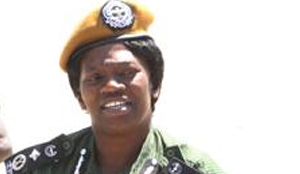AS the country observes the 16 Days of Activism Against Gender Violence which starts on November 25, it is inevitable to reflect on some of the efforts that have been made in ensuring that cases of Gender-Based Violence (GBV) are drastically reduced.
The period, which is an international campaign for the elimination of violence against women, runs through up to about December 10, 2014.
Like each year, the campaign hopes to raise awareness about gender-based violence as a human rights issue at the local, national, regional and international levels.
This year’s theme for observing this important period, which has been marked on the United Nation’s calendar is: ‘From peace in the home to peace in the nation: Stop GBV, empower women and men’.
Therefore, one would anticipate that efforts should start at an individual level but should not end up with organisations alone.
Observing this period should not just be deemed as one of those events celebrated without yielding any tangible results or else it will be rendered as an academic exercise.
Universally, the common forms of violence against women are domestic such as intimate partner violence, including rape, sexual harassment, emotional or psychological violence.
Statistics that have been availed so far show that women are the most effected followed by girls, not to exclude some men of course.
Inspector General of Police Stella Libongani recently revealed that the country recorded 8,699 cases of GBV between January and June this year.
It is important to look at some of the drivers of these forms of violence, which affect mostly women and girls who are considered to be the weaker sex.
In the case of girls, they need protection from the perceived culprits of these abominable acts or there will be no safe place for them.
In most cases these forms of violence are perpetrated by men, not to say that women sometimes are the aggressors looking at the cases so far reported.
But men would rather hide behind their ego and avoid reporting their cases, in situations where they fall victim of GBV, rare these violations may be.
We do agree with the sentiments by Ministry of Gender and Child Development Permanent Secretary Daisy Ng’ambi, echoed during a media breakfast recently that there was still a lot that needed to be done in terms of changing the perception, attitudes and behaviour as a way of eliminating GBV.
As the 16-day period draws near, let us promote more love, tolerance and forgiveness against one another.
Let us also ensure that we promote peace everywhere, only then will the fight against GBV turn out to be a meaningful one.







